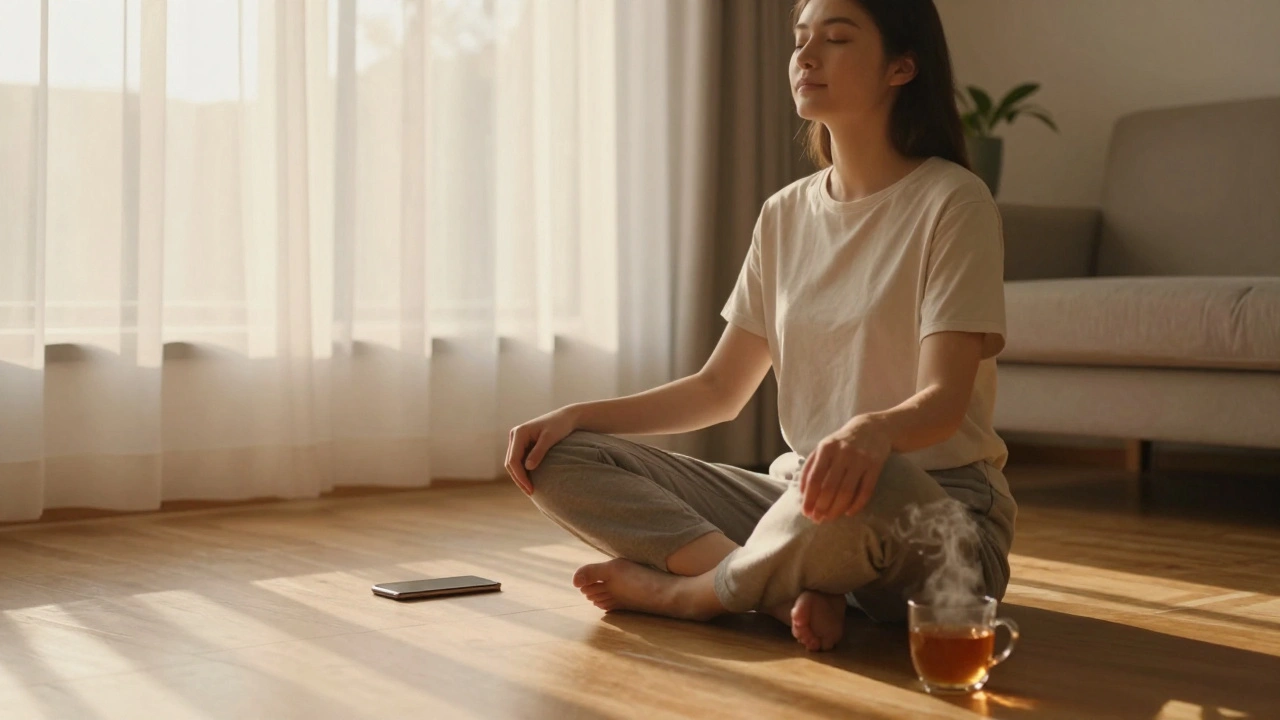Mental Health: Practical Approaches to Feel Better Every Day
Mental health isn't just about avoiding problems—it's about learning useful ways to handle stress, anxiety, and focus challenges you meet daily. Whether you're curious about managing worry, improving brainpower, or finding new therapy styles, understanding some basics can really help.
One approach that's getting attention is biofeedback. It uses real-time body signals—like heart rate or breathing—to help you recognize when stress is building up. By seeing these signals on devices, you can learn to calm yourself down before things get overwhelming. People with anxiety, ADHD, or focus issues have found this tool useful as it teaches control over reactions that often feel automatic.
Spotlight on Health Anxiety
Health anxiety sneaks up quietly but can weigh heavily on your day-to-day life. It’s more common than many realize, causing constant worry over little symptoms and doctor visits. Recognizing this pattern is the first step. Then, practical tips like separating facts from fears and developing a calming routine help ease that mental load. Stories from others facing similar challenges show you’re not alone—and there are ways to take back control.
Creative Arts Therapy: A Different Kind of Healing
If traditional talk therapy hasn’t clicked for you, creative arts therapy might offer something fresh. Whether it’s painting, music, or drama, these activities let you express feelings without needing to find the right words first. This approach isn’t just about art; it’s about unlocking emotions and discovering new ways to cope. As more people share their successes, it's clear that creative expression can be a powerful part of feeling mentally well.
All these options share one goal: helping you live a calmer, more balanced life. Whether it’s through body-awareness tools like biofeedback, understanding your anxiety, or tapping into creativity, there’s a path that fits your style. Ready to explore what works for you? Your mental health journey is all about finding tools that make sense to you and sticking with them.
Understanding Health Anxiety and How It Controls Your Daily Life
- Jason Blackwood
- Jan, 20 2026
Health anxiety traps people in constant fear of illness, even when tests show they're fine. Learn how it works, why it's so hard to shake, and what actually helps - without dismissing your experience.
Learn MoreHow Nature Improves Mental Health: Science-Backed Benefits of Spending Time Outside
- Marcus Fairchild
- Jan, 19 2026
Spending time in nature reduces stress, lowers anxiety, and improves mood. Science shows that just two hours a week outdoors boosts mental well-being-even in cities. Learn how forests, parks, and water help your brain heal.
Learn MoreHow to Prioritize Mental Health in a Busy World
- Marcus Fairchild
- Dec, 30 2025
Learn practical, everyday ways to protect your mental health without adding more to your plate. Small habits, not big changes, make the real difference when life gets overwhelming.
Learn MoreHow Positivity Boosts Mental Health in Everyday Life
- Arlo Sterling
- Dec, 9 2025
Positivity isn't about ignoring pain-it's a science-backed habit that reduces stress, builds resilience, and rewires your brain for better mental health. Learn how small daily practices make a real difference.
Learn MoreDiscover the Power of Calmness and Its Impact on Your Well-being
- Jason Blackwood
- Dec, 4 2025
Calmness isn't just relaxation-it's a powerful tool that lowers stress hormones, improves focus, and strengthens relationships. Learn how small daily practices can transform your mental and physical well-being.
Learn MoreThe Hidden Power of Relaxation Techniques for Mental Health
- Leonard Trimble
- Oct, 27 2025
Relaxation techniques like deep breathing, progressive muscle relaxation, and guided imagery can reduce stress, improve sleep, and boost mental health with just a few minutes a day. No apps or equipment needed.
Learn MoreWhy Mental Health Must Become a Global Priority Now
- Lyra Whitfield
- Oct, 7 2025
Explore why mental health is a worldwide crisis, its economic impact, and actionable solutions ranging from teletherapy to policy advocacy.
Learn MoreHow to Support a Loved One’s Mental Health in Crisis
- Jason Blackwood
- Oct, 6 2025
Learn practical steps to recognize, talk to, and support a loved one with mental health challenges, plus resources, self‑care tips, and FAQs.
Learn MoreBiofeedback and Cognitive Performance: How Real-Time Body Data Boosts Focus and Brainpower
- Leonard Trimble
- Jul, 7 2025
Explore how biofeedback uses real-time data to sharpen cognitive performance, improve memory, and boost focus. Tips, stats, and practical uses included.
Learn MoreHealth Anxiety: The Silent Epidemic Nobody Talks About
- Jason Blackwood
- Jun, 16 2025
Health anxiety is way more common than people think—it quietly messes with daily life, fueling constant worrying over symptoms and doctor visits. This article pulls back the curtain on why it happens, how it hides in plain sight, and what simple strategies can help. You'll get relatable stories, eye-opening facts, and down-to-earth advice to cut through all the noise. It's about taking control, spotting red flags, and knowing when to get real help. If health worries keep popping up in your mind, this guide is for you.
Learn More








